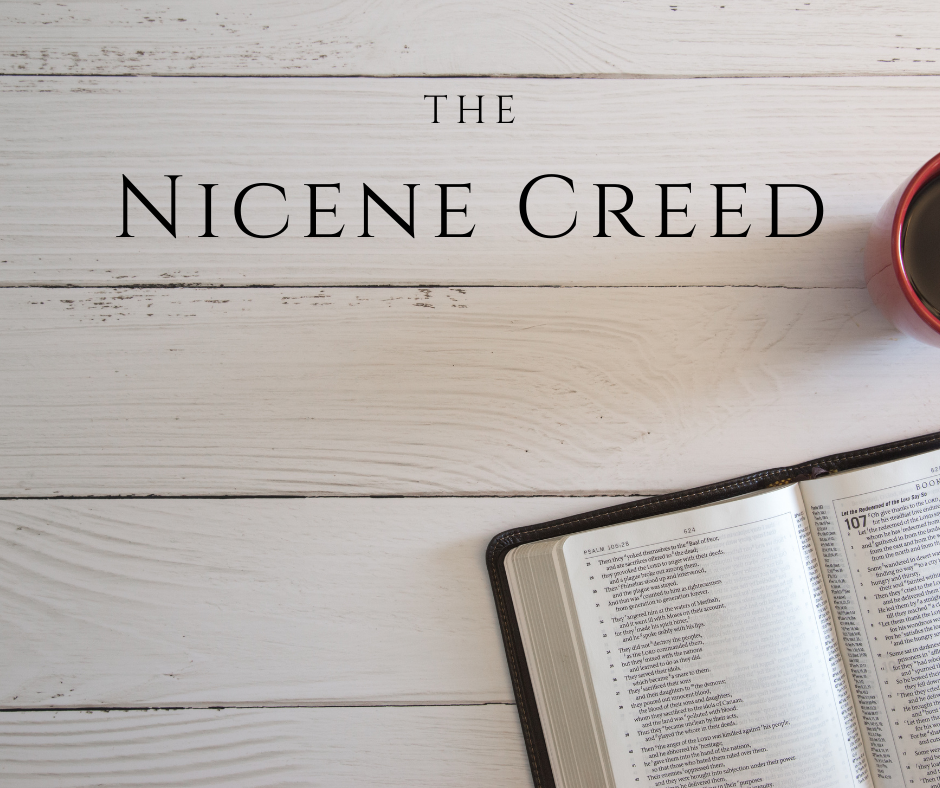Who do you Say that I Am?
We come now to a passage that is known as the hinge of the gospel. A point in which everything changes direction. You might have had 'hinge moments' in your life. If you look back on your life, you notice that many things would be very different if that event did not happen. For me, my life would look drastically different if I had never met Sarah. That day in December 2010 was a hinge moment in my life. We
Lord and Giver of Life
The Holy Spirit, you could say, is the most misunderstood person in the Godhead. Although not perfectly we have the concept God as our creator and redeemer. Much of theological discussion has centered around Christology or Theology, many systematic volumes spend little time on the Holy Spirit, in one chapter (this I believe is because the work of the Holy Spirit is the tread which ties many of the chapters together, as we will mention below with inseparable operations). Jesus explains
Seeing and Believing
Seeing is believing, as the proverb says. As the proverb says, the only way that one can truly believe is to see. However, we know this to be false. The eye can play tricks on your brain, such as optical illusions. Just because I see a man pull a bunny out of an empty hat does not mean I am a 'believer.' All things require faith in something. The proverb seeing is believing requires faith in your eyesight to reflect
Holy Spirit in the Westminster Confession of Faith
Below is a summary of the Holy Spirit as found in the Westminster Confession of Faith. You could also expand this post to include the larger and shorter catechisms, but for the sake of time, we will limit ourselves to the Westminster Confession of Faith. The Holy Spirit, the third person of the Godhead eternally proceeding from the Father and the Son (1 John 5:7; Matt 3:16-17; 2 Cor 13:14 cf. WCF 2.3). The nature of continuing revelation has ceased after
Feeding of the Four Thousand
Feeding of the Four Thousand (Mark 8:1-9) In my short time as being a pastor, I have had a few moments of absolute shock and fear as I begin the scripture reading and a sense of Déjà vu comes sweeping across my mind. I think to myself, have I preached or taught this text already. Have I pulled up the wrong sermon notes? Did I print out last week’s bulletin? These moments are often short-lived. When we read the Bible as
And in the Holy Ghost
First, let us begin with an understanding of the word Ghost or Spirit. This is a difference in the English language and shows the progression of words. The Holy Ghost was used in the 1611 King James Version of the Bible. The Holy Ghost is translated 90 times in the KJV, and Holy Spirit is only translated seven times. Ghost today has taken on a broader semantic range than in 1611; ghost used to mean "an immaterial being"; however, today,
Be Opened
We come to a passage that many people seek to skip over. They might do so for various reasons, the use of spit and placing fingers in ears, the connection between bread and being satisfied from the Syrophoenician woman (Mark 7:24-30) and the bread and feeding of the 4000 (Mark 8:1-10), and finally they might, as I have mentioned before, seek to focus on Matthew and Luke compared to Mark. However, this passage is important for serval reasons. Under the
Difference between 325 and 381
Before moving to the next section, I want to stop and reflect on something that I have commented about a couple of times. This Creed we are looking at was written within history and dealing particularly with heresies, mainly Arius' heresy saying Jesus was not God but was a celestial servant of God. In the original Creed, 103 Greek words were used, 83 spoke about the second person of the Trinity (See Chart 1). The Creed was approved in 325,
Crumbs at the Table
Mark turns from the handwashing and dietary laws of the Pharisees who questioned Jesus' disciples' cleanliness, of what is clean and unclean. In this literary masterclass, he now writes about the story of the Syrophoenician woman. Up to this point, many people have not understood Jesus and his teaching. The pharisee's thought the law was about having clean hands and not a clean heart. They thought they could enter heaven with their handwashing and diet. However, in today's passage, we
Whose kingdom shall have no end
Forever is a long time. Often children cannot grasp the concept of time, the age-old question, "are we there yet?" Which can be asked just as you exit your driveway. For us, everything is within time. Time is how we measure many things. We have birthdays, and 'death-days' time, like our physical bodies, has limitations. No one can squeeze an additional second out of a day. The difficult aspect that we cannot wrap our heads around is not time but





